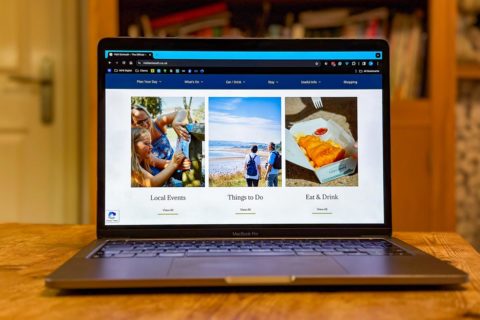Website page speed – the issues and solutions for small businesses
Website page speed – the issues and solutions for small businesses
Most of us will put the speed at which any website loads down to our own internet connection, when in fact much of it will be related to the website hosting you or your web designer chose when they launched your site. There are two very important reasons your website should load as quickly as possible:
1. Your customers want it to; we’ve probably all had times when we’ve visited a website, the page hasn’t loaded within a couple of seconds and we’ve gone elsewhere. The internet is an impatient place, so if the information isn’t with us within a second we may well seek it elsewhere.
2. Google wants it to; as a search engine their primary goal is to give any searcher the best results possible, and that doesn’t include slow websites. Page speed is a factor within their ranking algorithm, and it’s there because they want searchers to find what it is they’re looking for quickly.
So if you have a slow website you may be getting hit with double trouble; you’re likely to have visitors dropping off that may have otherwise booked or bought from you, and you’re likely to be ranking lower, which means less people visiting your site.
Not a great place to be in!
So how quick is your site?
As we’ve said, you’ll often gauge the speed of a site on your own internet connection, but what about those with a quicker or slower connection? How long does it take to load for them?
The good news is that Google has a simple test and scoring system for you:
https://testmysite.thinkwithgoogle.com/
Place your site into this link and see what score you get. If you’re seeing numbers beneath 50 or 40 then we need to be doing something about them, and as luck would have it, we know what to do!
Causes of slow loading sites and the solutions
There are two very common issues that cause a website to load slowly, so take a look at your own and have a think about which (if it isn’t both) is affecting your performance:
1. Large images, sliders and galleries
If you have a lot of images on your site, the page needs to load them when anyone visits. Because imagery can sometimes have large file sizes this means that page speed can be compromised. So does your site have a lot of galleries, sliders and imagery?
If it does, then we’re not saying you need to take it down and revert to a novel style website only with paragraphs of text! Instead you need to make sure that those images have been resized and are compressed as much as possible to reduce their file size.
If you don’t have advanced software such as Photoshop then don’t despair; simply Google ‘online image resizer’ and there are a multitude of free solutions. It will take a bit of time, but all images should be resized before they go on your site; we want file sizes (‘CMD + I’ on Mac to find this or right click and ‘view properties’ on Windows) of 200KB or less – not above 1MB.
You’ll find that once done, your page speed score should go up.
2. Slow hosting
If your page speed is slow and you haven’t got lots of imagery, then the chances are the problem lays with your hosting. If you’re paying £10 or less a month for this, then the chances are you’re on something called a ‘shared server’. This means that your site lives in a big black box in a cold room, alongside many other websites. There is no real issue with this, but depending on the provider, it can cause a slowing of speed.
The reason for this is that different providers load their servers in different ways; some might put just 100 sites on each, another may put 1,000. The traffic each of those has and the memory the host allows for it will dictate how quickly your site loads; you may find that you have periods where things are slow, only for them to return to normal the next day. This is because of the load on your server.
So what do you need to do? Ultimately you may need to take the decision to move host. That isn’t as big of an operation as you may think and we often have new clients wanting to move their site to alternative hosting as we know the quick from the slow providers.
If you need a hand with this, then please let us know.
There are of course many factors that can affect how quickly your site will load, but these are the two common culprits, so run the test and see what needs to be done!
For more information on how we can help to improve your website performance and conversion please give us a call on 01566 232323 or drop us an email on hello@mihidigital.co.uk



Emmerey Rose
Very informative post. I was wondering, which of the two affects the load speed more? Also, is there any plugin we can use to compress images in wordpress?
Mark Worden
Hi Emmerey, Thanks for your feedback and question. It depends largely on the site – a site with lots of imagery is going to have that as a big factor, whilst other smaller, and simpler sites are going to see hosting as their main obstacle. We’ve found 123reg to be very slow in terms of shared hosting. There are plugins such as Smush It that can compress images once they are on site, but you’re adding another plugin and you’d ideally want to keep those to a minimum where possible. For that reason we’d recommend resizing before uploading. Even for those without Photoshop or other photo editing software, there’s still online resizers which can be found through Google. Thanks, Mark
Emmerey Rose
Thanks Mark! This definitely helps a lot! 🙂